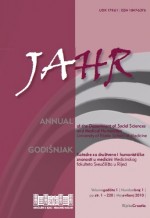From Nuremberg to UNESCO: informed consent to medical treatment or exam
Keywords:
UNESCO, bioethics, patient’s consent, human dignity, autonomy, international law on human rightsAbstract
Th e informed consent to a medical treatment or participation in medical research is nowadays considered a fundamental standard of everyday practice and scientific research in medicine. However, accepting this standard, both in medical ethics and law, is not uniquely viewed upon in terms of its content or necessity. Starting from basic principles – human dignity and individual autonomy – UNESCO’s International Committee for Bioethics has offered in sketches of three bioethics declarations unique rules which must be followed in the applica-tion of this institute, and which were consequently adopted by consensus by all UNESCO state members. Following a short historical overview, this presentation examines the stan-dards of patients’ consent to a medical measure or exam contained in UNESCO’s bioethics declarations, namely: Universal Declaration on Human Genome and Human Rights, International Declaration on Human Genetic Data and Universal Declaration on Bioethics and Human Rights. The presentation will show that declarations hold only minimum standards that protect patients or participants in medical exams from self-willing treatment or research and that the authors of these documents missed the opportunity to set rigorous and explicit rules for the applications of this institute. However, bearing in mind that most countries’ domestic legal regulations are not sufficiently elaborated in regards with biomedicine and that the existing domestic laws differ in many aspects, the author shall show that the UNESCO’s bioethics declarations are a useful source and signposts for the domestic systems in defining ethical and legal regulations regarding biomedicine. Besides, even though these documents are not legally binding, one should bear in mind that declarations of this type are the first step towards the necessary protection of human rights with regards to biomedicine worldwide and they promote a new approach to solving bioethical dilemma based on the international law on human rights.
Downloads
Published
Issue
Section
License
Authors who publish with this journal agree to the following terms:
- Authors retain copyright and grant the journal right of first publication with the work simultaneously licensed under a Creative Commons Attribution License that allows others to share the work with an acknowledgement of the work's authorship and initial publication in this journal.
- Authors are able to enter into separate, additional contractual arrangements for the non-exclusive distribution of the journal's published version of the work (e.g., post it to an institutional repository or publish it in a book), with an acknowledgement of its initial publication in this journal.
- Authors are permitted and encouraged to post their work online (e.g., in institutional repositories or on their website) prior to and during the submission process, as it can lead to productive exchanges, as well as earlier and greater citation of published work (See The Effect of Open Access).



